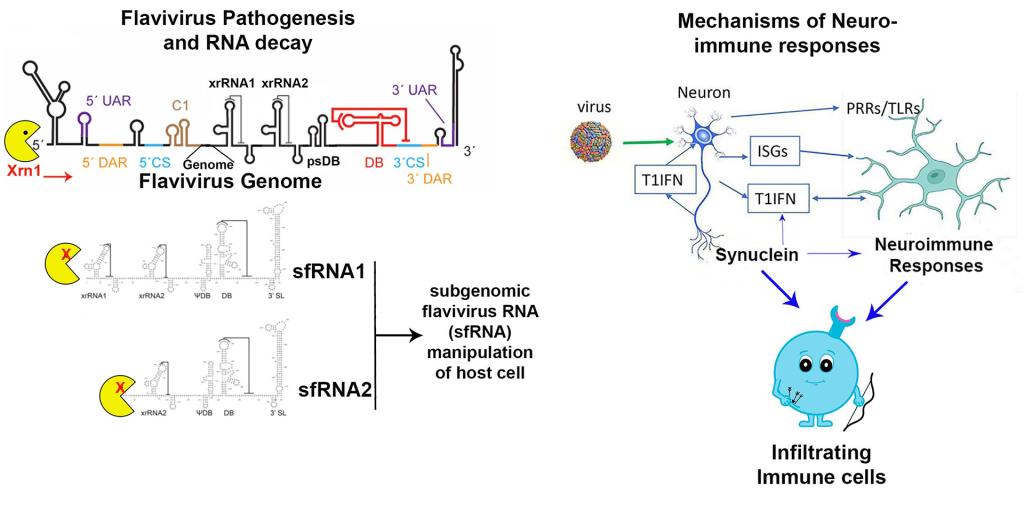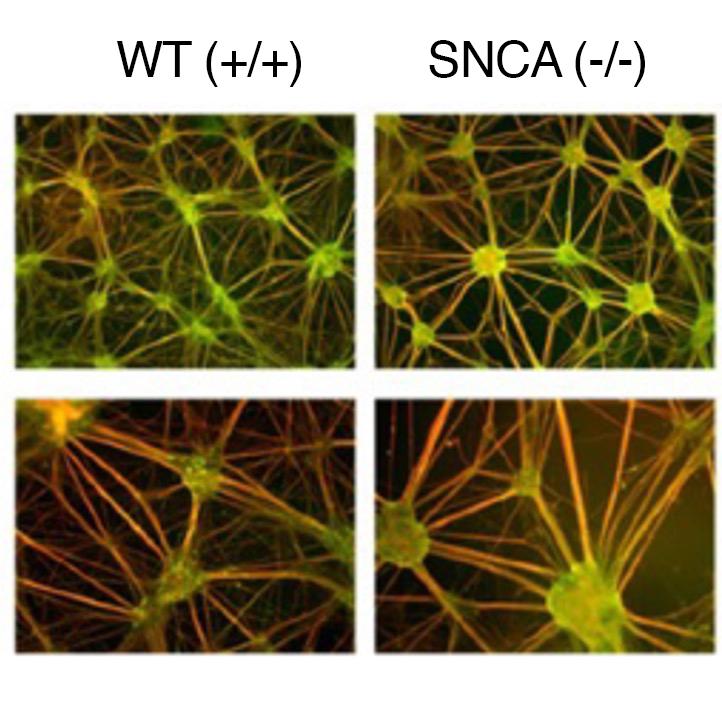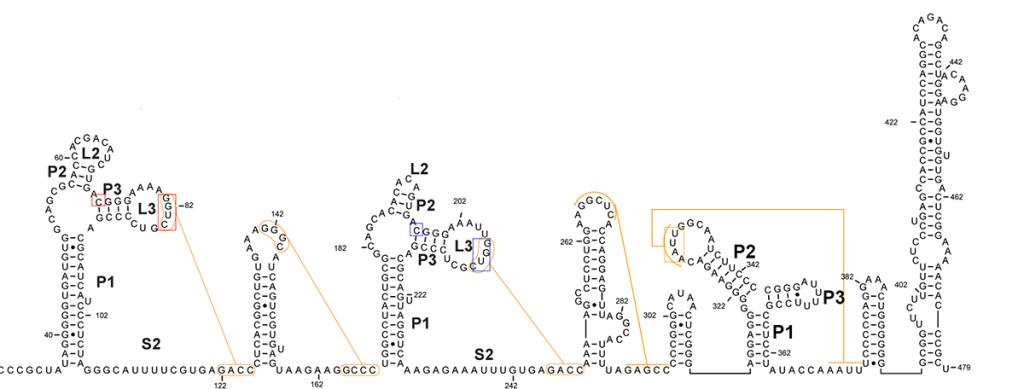Flavivirus Pathogenesis and Neuroimmune responses

Our laboratory is a dynamic, multidisciplinary environment that studies immune responses to viral infections with a focus on arthropod-borne viruses, vaccine immunology, and immune responses in the nervous system. Our viral immunology group works to develop novel vaccine approaches for emerging arthropod-borne virus infections and our neuroimmunology group is working to understand the mechanisms by which the immune response contributes to neurodegenerative diseases.

The Neuroimmune function of Alpha-synuclein
In 2016, we published the first manuscript to show that alpha-synuclein has a functional role. Prior work had clearly shown that the neuronal protein, alpha-synuclein, plays an important role in the pathogenesis of Parkinson’s disease and related synucleinopathies. However, the functional role of alpha-synuclein. Our lab discovered that alpha-synuclein functions to mediate type 1 interferon signaling in support of neuronal interferon stimulated gene expression. Our current work is linking the post-translational modifications of alpha-synuclein associated with Parkinson’s disease with functional roles in interferon signaling.

Flavivirus RNA structure and function
Flaviviruses such as dengue virus, Zika virus, and West Nile virus have conserved RNA structures throughout the genome. 3-dimensional RNA structures in the 3’ untranslated region of flaviviruses play an important role in the generation of flavivirus subgenomic non-coding RNAs that are critical to inhibit the immune response in support of flavivirus pathogenesis. Our laboratory utilizes site-direct mutagenesis to define the RNA structural features in the 3’UTR that are required to support flavivirus pathogenesis. Using these approaches, we also generate attenuated flavivirus vaccine candidates that can be developed into next-generation vaccines for emerging flavivirus infections.

Innate NeuroImmune Cellular responses
Our laboratory studies the innate immune mechanisms responsible for early viral restriction in the central nervous system. We have recently discovered that innate T-cell responses are important for control of early virus infection in the brain and respond using an antigen independent mechanism. Our current studies are defining the mechanisms by which innate cellular immune responses are regulated in the brain and the mechanisms by which virus infections escape innate cellular immune responses during infection.